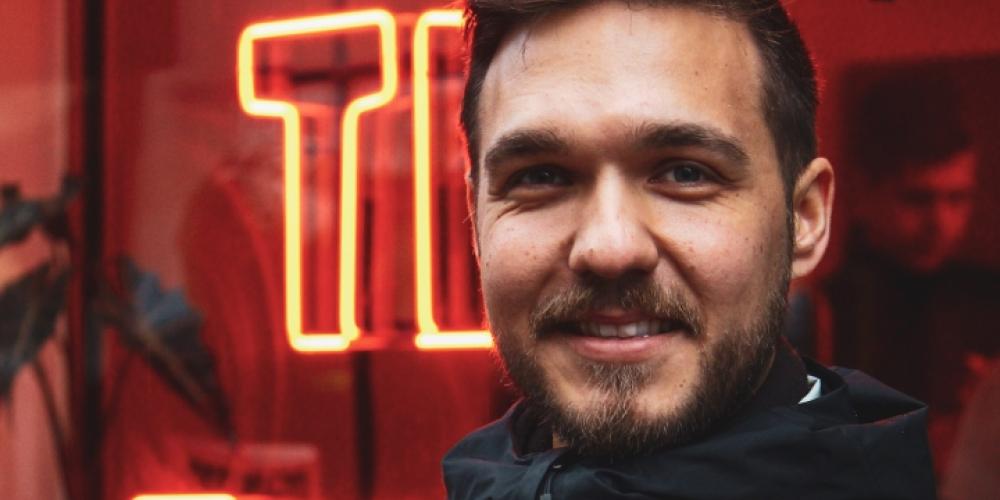
NULL
Sea turtles and climate change
10 experts and 80 VUB-alumni discussed 10 hot topics as part of our Alumni Summit. Click here to Listen to our podcast on climate change.
Adrian is the prime example of a VUB-alumnus with an international mindset. His TROPIMUNDO master - short for Tropical Biodiversity and Ecosystems - took him from Italy to Malaysia, after which he spent one semesters at our university. His education provided him with an interest in climate change and ecosystems and a spark to change things for the better. ‘For my thesis I studied the influence of predators on the eggs of sea turtles. What many people do not know is that the gender of a sea turtle is determined by the temperature of its habitat: warmer temperatures mean more female turtles. But as we all know, it takes two to make a three. It was then that I realized that the impact of greenhouse gas emissions reaches much further then we often think.’
Changing the world one step at a time
Realising there is a problem is one thing, doing something about it another. Adrian puts his money where his mouth is with the launch of two endeavors that try to set things in motion on a more local level: Sustainable Brussels City Tours and Plastic Free Plux.
‘With our city tours we want to shed a light on sustainability projects in Molenbeek, the north district and the broader Brussels area. By showcasing small-scale projects such as secondhand stores, urban gardens and vegan restaurants, we hope to inspire people to reflect on the small changes they can incorporate in their everyday life.’ Plastic Free Plux tries to tackle plastic pollution by convincing store owners and cafés to eliminate single use plastics. ‘Nowadays, stores in Brussels often offer single use plastic cups. We nudge them into transitioning to systems such as the return-a-cup idea and reusable cups.’ The project is already starting to bear fruit: one barowner has decided to move away from single use plastics while two are contemplating a similar approach.
A sign of the times
The rapid sprouting of projects such as Plastic Free Plux does not surprise Adrian. He considers it to be a natural consequence of movements such as Youth For Climate and the growing awareness of global warming. ‘A lot of things are happening in the world. Look at the climate marches in Belgium and all over Europe! Younger generations are asking for change. For solutions. If you ask me, the sustainability revolution is already here. It’s only a matter of upscaling existing projects and initiatives, but that will require close collaboration with policymakers.’
Younger generations are asking for change. For solutions.
Looking back
When hearing Adrian talk, we can’t help but wonder whether his time at the VUB contributed in a meaningful way to his present day activities. Turns out yes: ‘The vast amount of extracurricular activities made it easy for me to get in touch with students from different programmes and backgrounds. This really broadened my view on the themes I am so passionate about. The fact that the VUB is a melting pot of different cultures and languages also helped me in improving my language skills and understanding of other cultures. An important asset for professional collaborations later in life.’ When discussing student life he admits he misses the international cooking dinners he and his friends used to organize. ‘Every single one of us was in charge of cooking a signature local dish to then share with the rest. Food is always a good way to bond.’